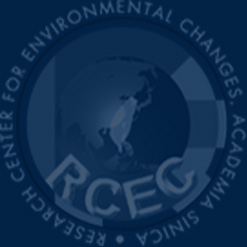

Li, Chong-En李崇恩
Postdoctoral Research Fellow
Research Interests
Chong-En Li, Ph.D., is a geographer who typically studies issues related to the environment, society, and urban problems by the paradigm of geography. His published papers cover various topics such as ecosystem services, air and water pollution, urban green spaces, urban drinking water, urban resilience and smart cities, urban food systems, and rural gentrification. Under the training in geography, Dr. Li excels in approaching various issues from a cross-disciplinary perspective, combining insights from environmental resources management, public health, and urban planning to gain a holistic understanding. Dr. Li's recent research interest has shifted toward ecosystem services. His work focuses on investigating the intricate relationships between ecosystems and human well-being. Through comprehensive studies, he aims to highlight the value of natural environments in supporting industries, enhancing the quality of life, and building resilient cities.
Representative Publications
Li, C.-E., Kuo, N.-W.* & Lin, Z.-E. (in press). The corporate social responsibility of companies in Hsinchu Science Park and ecosystem services.
Li, C.-E., Lin, Z.-E., Dong, W.-H., Kuo, N.-W.* & Chiueh, P. T. (in press). Evaluating the impact of water scarcity on industrial output value in the Hsinchu Area from the perspective of ecosystem provisioning services: Quantification and exploration. Journal of Technology Management. (TSSCI)
Li, C.-E., Lin, Z.-H., Hsu, Y.-Y. & Kuo, N.-W.* (2023). Lessons from COVID-19 pandemic: Analysis of unequal access to food stores using the Gini coefficient. Cities, 135, 104217. https://doi.org/10.1016/j.cities.2023.104217 (SSCI, IF: 6.077)
Kuo, N.-W.*, Sharifi, A., & Li, C.-E. (2022). Smart cities and urban resilience: Insights from a Delphi survey. In A. Sharifi, & P. Salehi (Eds.), Resilient smart cities: Theoretical and empirical insights (pp. 119–138). Springer. https://doi.org/10.1007/978-3-030-95037-8_6 8.
Kuo, N.-W.*, & Li, C.-E. (2022). Do smart cities projects contribute to urban resilience? A case study based in Taipei City, Taiwan. In A. Sharifi, & P. Salehi (Eds.), Resilient smart cities: Theoretical and empirical insights. (pp. 189–212). Springer. https://doi.org/10.1007/978-3-030-95037-8_9
Research
Impact of Ecosystem Services on Hsinchu Science Park As a principal industrial center in Taiwan, the Hsinchu region heavily relies on the ecosystem Provisioning Services to sustain its production needs. Li et al. (in press) used “Regionalized Characterization Model of Water Consumption Impacts” to quantify the industrial value losses due to insufficient water supply during drought events. The result investing in developing alternative water sources, explore incorporating corporate social responsibility and ecosystem service compensation to safeguard the provisioning services of the ecosystem could be considered.
COVID-19 and urban food system Insufficient supply of food stores can lead to crowding and a higher risk of virus infection. During COVID-19, the importance of food store quantity and distribution in the spread of the virus became apparent. Li et al. (2023) used the Gini coefficient to evaluate the accessibility equity of food stores in Taipei City. This new method can show the city’s potential weakness during a pandemic and contribute to increasing urban resilience.
Urban food environments of Taipei: Food rainforest Food deserts have been extensively discussed in Europe and the United States for over a quarter of a century. However, this concept has received limited attention in Asian countries, including Taiwan. Li et al. (2023) conducted a systematic and critical literature review and empirical research results from Greater Taipei. They introduced the term “food rainforest” and suggested that this term has more potential to describe the current food systems in Asian cities.